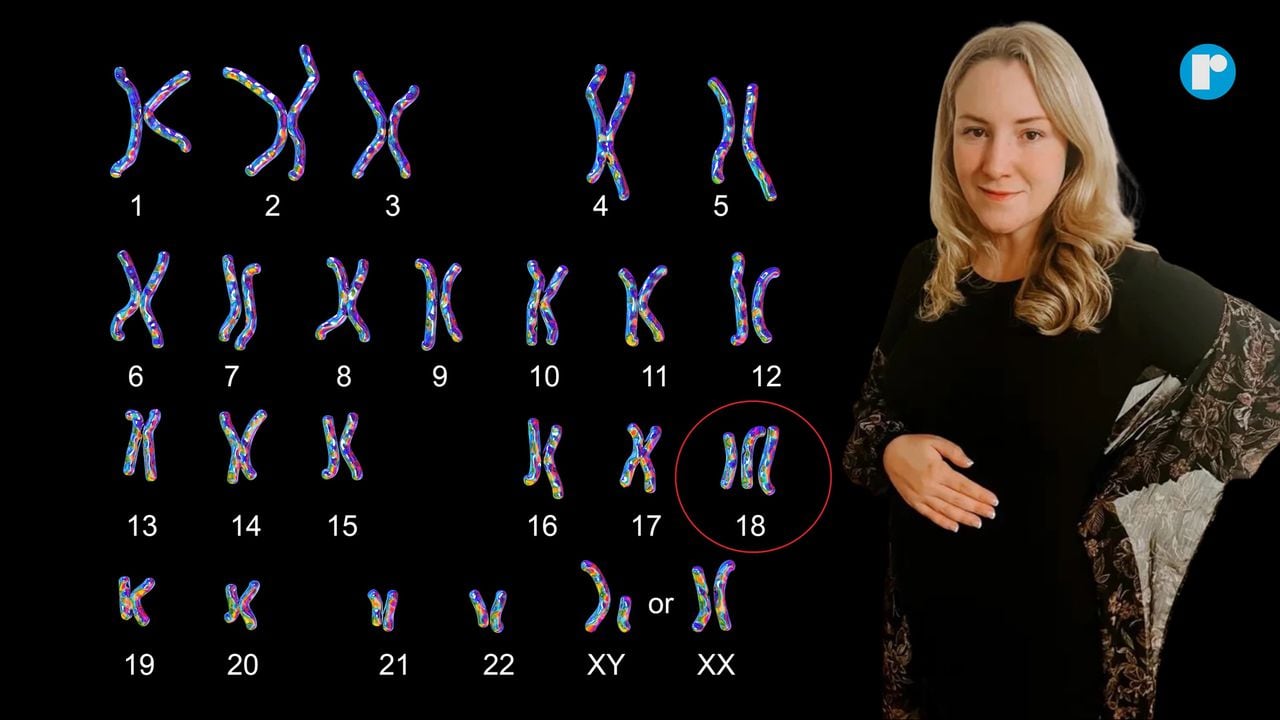What is trisomy 18, the condition causing a Texas woman to flee the state for abortion?
A Texas mother-of-two is making headlines and becoming the face of the battle for exceptions in abortion bans.
On Nov. 27, at 20 weeks pregnant, Kate Cox learned that her wanted pregnancy would likely be unviable, as her baby was diagnosed with trisomy 18 – a medical condition linked to miscarriage, stillbirth and death in infancy. Texas has a near-total abortion ban, with exceptions for cases that threaten the life of the pregnant person, though Cox’s story illustrates that those defining lines are not so black and white.
The mother-of-two looked to the courts to approve her abortion. A Dec. 5 court filing details her travels to three emergency rooms, where doctors told her she would have to allow the baby to die inside of her or carry the pregnancy, risking complications of a third c-section and the likeliness that the baby would die soon after birth.
Cox was granted a temporary restraining order to terminate the pregnancy on Dec. 7 by Travis County District Judge Maya Guerra Gamble, to which Texas Attorney General Ken Paxton responded by letter to three hospitals, according to the Texas Tribune. In the letters, which were shared on Twitter, he threatened the potential of civil and legal liability for anyone involved in the abortion process.
“We remind you that the TRO [temporary restraining order] will expire long before the statute of limitations for violating Texas’ abortion laws expires,” wrote Paxton, who also asked the higher court to step in.
On Monday afternoon, the Center for Reproductive Rights, who is representing Cox, announced she had left the state to receive her abortion. Soon after, the Texas Supreme Court ruled that her case did not qualify for a medical exception, and overturned the restraining order.
Though her whereabouts have not been disclosed, Cox presumably has or will soon have terminated her pregnancy.
“This past week of legal limbo has been hellish for Kate,” said Nancy Northup, president and CEO at the Center for Reproductive Rights. “Her health is on the line. She’s been in and out of the emergency room and she couldn’t wait any longer. This is why judges and politicians should not be making healthcare decisions for pregnant people—they are not doctors.
What you need to know about trisomy 18
Trisomy 18, also known as Edward’s syndrome, is a genetic condition that occurs when a baby is born with three copies of chromosome 18 instead of the usual two. This extra chromosome disrupts normal development and leads to a range of physical and intellectual disabilities.
In 2012, Republican candidate Rick Santorum cut his campaign for president short to tend to then-3-year-old daughter Isabella, who had a medical emergency linked to her trisomy 18.
“When the cells are dividing when a woman is still pregnant, an accident happens… and the child ends up with too much genetic material, sort of extra genetic material, and it can affect every single part of the child’s body…” said Elizabeth Cohen, CNN senior medical correspondent said during an on-air interview with Soledad O’Brien.
Trisomy 18 is a serious condition and there is no cure. Unfortunately, the majority of infants with Trisomy 18 do not survive their first year. However, some children born with Trisomy 18 can live for several years with appropriate medical care and support. Only 13 in 100 born with trisomy 18 live past their first birthday.
Medical News Today reports that those who do survive face issues such as low birth weight, intellectual disabilities, cleft lip, abnormally shaped heads, overlapping fingers, structural brain issues and more. Over 90% of infants with this condition have congenital heart defects, and 50% experience hearing loss.
Trisomy 18 is not a hereditary condition, but rather, an abnormality of the chromosomes that causes issues in the development of organs. While most people are born with two chromosome 18s out of our 23 pairs of chromosomes, those with trisomy 18 have an extra one in all or some of their cells.
According to WebMed, there are three types of trisomy 18:
- The most common type, full trisomy 18, occurs when an extra chromosome is present in every cell of the baby’s body.
- Partial trisomy 18 is when part of an extra chromosome 18 attaches to another chromosome in the egg or sperm cell.
- Mosaic trisomy 18 affects only some cells. Only about 5% of those with trisomy 18 have mosaic trisomy.
Numerous outlets report that trisomy 18 impacts 1 in 5,000 live births, including the National Institute of Child Health and Human Development (NICHD). NICHD also points out that this is much more common, though most pregnancies diagnosed with the condition don’t survive past the second or third trimesters. The Trisomy 18 Foundation estimates that 1 in 2,000 pregnancies are affected.
For more information about trisomy 18, visit www.trisonomy18.org.
